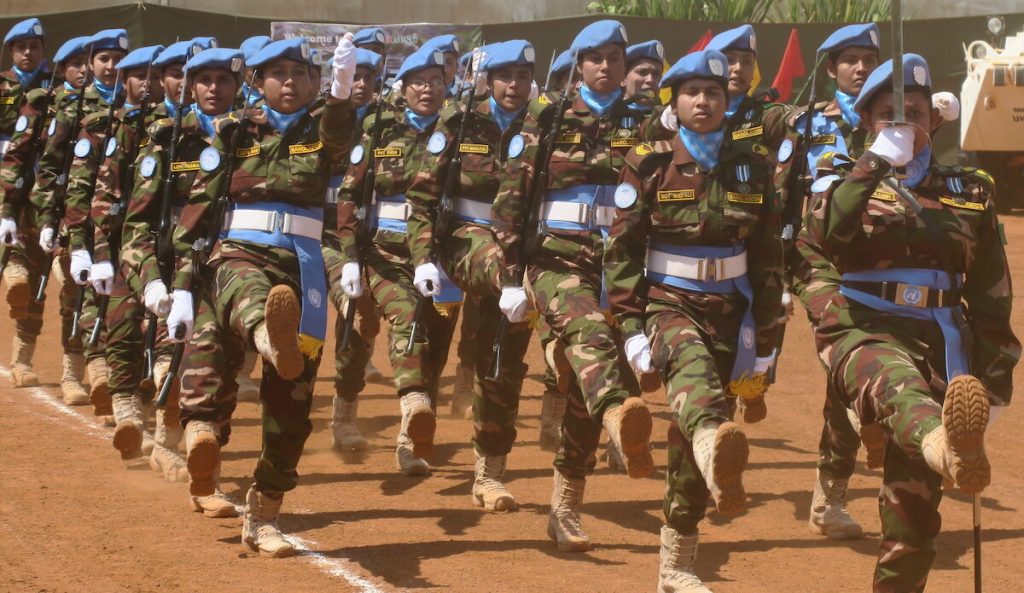Bangladesh’s Chief of Naval Staff, Admiral Mohammad Nazmul Hassan, has acknowledged the significant contributions of the Bangladesh Force Marine Unit (BANFMU) to peacekeeping efforts in South Sudan over the past decade.
The BANFMU plays a pivotal role in the United Nations Mission in South Sudan’s (UNMISS) operations, ensuring freedom of movement along the River Nile and reaching remote communities that are otherwise inaccessible due to impassable roads.
The 200-strong unit, equipped with 12 boats, provides essential protection to barge convoys transporting food, fuel, and other critical supplies along the 1,876-kilometre riverine route from the capital Juba to UNMISS’s northernmost bases.

Admiral Mohammad Nazmul Hassan praised the unit, stating, “The Force Marine Unit has fulfilled its duties by providing logistical support to UNMISS-deployed forces and ensuring that the civilian population can live in peace.”
BANFMU’s efforts are part of a broader Bangladeshi commitment to global peacekeeping, with 1,632 personnel, including 101 women, serving in South Sudan. These peacekeepers carry out diverse activities such as protecting civilians, facilitating the delivery of humanitarian aid, and constructing hundreds of kilometres of roads under challenging and often perilous conditions.
Nicholas Haysom, Special Representative of the Secretary-General and Head of UNMISS, highlighted the global significance of peacekeeping, stating that peacekeeping is how the world comes together to support countries that would otherwise struggle to recover from conflict. It introduces stability, especially in regions deeply affected by war.
South Sudan, a nation that has endured two civil wars in the past decade, remains at risk of relapse into conflict. UNMISS’s primary goal is to prevent a resurgence of civil war while addressing the broader regional challenges posed by instability and violence.
Beyond their official responsibilities, Bangladeshi peacekeepers foster goodwill by engaging directly with the communities they serve. Their initiatives include offering medical care, constructing community facilities such as sports grounds, and donating educational materials to help students achieve their potential.
Through these acts of compassion, they help sow the seeds of peace, creating a foundation for a more stable and prosperous future for South Sudan.


